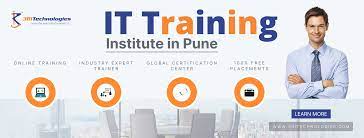Salesforce free videos and free material uploaded by 3RI Technologies Pvt Ltd Training Institute staff .
Basic Foundation
1. Programming Basics
Fundamentals of Computer
Understanding Applications Using
Windows Explorer & File Structure
Number Systems
Application Software
2. Operating System
& Networking
Need for the operating system
Functions of Operating System
Process Management
Memory Management
File Management
Device Management
Types of operating system
TCP/IP fundamentals
3. C Language
Introduction to C
Keywords, Constants, and Variables
Data Types in C
Operator and Expressions
Control Structure
Functions
Pointers
Arrays
Structure
String Handling
Preprocessor Directives
File Management in C
Dynamic Memory Allocation
4. Object-Oriented
Concepts using C++
Introduction to OOPs
Beginning with C++
Class, Objects Basics
Constructor, Data Members
Operator Overloading
Inheritance
Polymorphism
Overriding
5. Linux Foundations
Introduction to UNIX and its flavours
UNIX architecture
File System
User and Group Policies
Unix general commands
Concept of Files and Directories in Unix
6. Introduction to Database Mgt Systems
Introduction to Database
DBMS, RDBMS, ORDBMS
DDL, DML, DCL, TCL
Data types
SELECT Statement
Restricting and Sorting Data
Aggregating Data Using Group Functions
Manipulating Data
Subqueries
Important Functions
Joins and different type
Salesforce Developer
1. Understand what is apex?
2. Learn apex basics.
3. Discuss Loops & Collections.
4. Understand SOSL & SOQL.
5. Build various queries for different business scenarios
and review the result.
6. Provide detailed information on complex queries.
7. Provide information on trigger events & trigger
context
8. Study combinations
of trigger events and context variables.
9. Implement triggers, each with a case study.
10. Provide information on test apex and handler classes.
11. Provide guidelines/ best practices of building apex
classes.
12. Explain step-by-step or line-by-line the apex logic.
13. Provide details of visualforce variables.
14. Use standard and custom controllers to build VF pages.
15. Configure the visual force pages in application.
16. Build VF pages using Jquery or bootstrap libraries.
17. Explain use of HTML code on VF page.
18. Asynchronous Apex Methods: Future, Batch, Queueable
Method & Schedule Apex.
19. Lightning Component: Aura Attributes, Events, Decorators, Configuration File connected callback, Messaging Lightning data service, Third party callout(framework)
Saleforce Administrator
1. Understand relational database
2. Learn different types of relationships.
3. Learn “Primary Key” – “Foreign Key”.
4. Study Salesforce security of various types.
5. Build custom applications, objects, fields,
relationships.
6. Create users and manages their access and learn how to
apply custom validations.
7. Understand standard validations
8. Use Salesforce automation to add business logics.
9. Implement approval process and other business logics with
case study.
10. Learn how to manage bulk data request.
11. Use Import-Wizard and Data Loader to manage bulk data
operations.
12. Understand what is a security token and how to use it
Learn different Data-Loader commands.
13. Use of “External Id” in Upsert operation (with a
real-time example).
14. Understand the importance of analytics for a business.
15. Learn various report formats with report types
16. Create folders in the application and configure
different accesses for different users.
17. Create dashboards with different components Configure
dashboard for the Home screen.
18. Workflow rule, Process BuilderLightning Flow, Email
Templates A sequence of events, Custom label, Custom settings, Custom metadata,
Quick Action, Global Action.
Salesforce Deploymenet
1. Provide information on data vs. metadata.
2. Provide information on various type of Sandboxes.
3. Review deployment process from Sandbox to Production.
4. Explain change Sets (inbound & Outbound).
5. Configure eclipse with Force.com IDE plugin.
6. Learn various commands used in eclipse.
7. Create a Force.com project in eclipse & learn how to
pull or push changes.
8. Configure ANT tool for deployment Provide information on
commands in CLI.
9. Use CLI to pull & push app changes.
10. Describe packages in Salesforce Provide differences bw
managed vs. unmanaged package.
11. Learn the purposes/business cases of packages.
Project Work & Details:
Hands-on workshop/Project: Creating and Deploying a web
application using Salesforce.
Project Development for RecruitmentApplication, in detail
with all aspects of it.
Cloud computing technology is a matter of buzz in recent years with the rapid development of technology and marketing strategies, but Salesforce technology is also having a greater impact in the computing world. Salesforce is basically an online cloud-based technology that tends to increase the proximity between companies and customers. It is an integration of all the departments of a company such as marketing, sales, commerce, and service, which gives a shared view of every customer in a single platform.
Almost all computing based companies such as IT and software-based companies also prefer the Salesforce certified professional who makes their efforts of additional training to the employees. Besides the real-time applications, Salesforce certified professionals surely have the knowledge and practice for the sales management skills, which not only make them stand out over other competitors while recruitments but also adds some value to their job too.

- 0 Reviews
- 0 Students
- 25 Courses

Write a public review